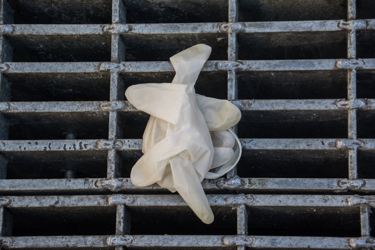Coronavirus Brings Surge Of Sewer Clogs To Wastewater Operations


The spread of the novel coronavirus has changed nearly everything about our daily lives and introduced challenges throughout our public systems. Drinking water and wastewater operations across the country have been no exception.
During the crisis, utility staff have been living at work, the U.S. EPA has been altering its approach to Clean Water Act regulation, and questions have been raised about widespread access to clean water at home. Now, it’s clear that the “new normal” has introduced another pervasive obstacle for wastewater operations: sanitary wipes and personal protective equipment (PPE) clogging sewers and storm drains.
“While drain clogs aren’t new, most of the more than 15 cities contacted by The Associated Press said they’ve become a more costly and time consuming headache during the pandemic,” AP reported, calling the surge in debris an “epidemic.” “Home-bound Americans are seeking alternatives to bathroom tissue because of occasional shortages, while stepping up efforts to sanitize their dwellings and themselves.”
The report offered examples of the problem from across the country. For instance, the majority of Philadelphia’s 19 sewer and stormwater pumping stations have experienced clogs from face masks, gloves and wipes; sanitary sewer overflows spiked by 33 percent from February to March in Houston due to clogs; and airfield maintenance workers at Beale Air Force Base in Northern California have shifted their responsibilities to focus on clearing out the base’s plumbing.
In Seattle, the epidemic has created a sewage clogging problem the likes of which it has never seen.
“The King County Wastewater Treatment Division says the buildup of masks, gloves, and non-flushable wipes in the wastewater system is at an all time high,” KOMO News reported. “During the pandemic, many people have turned to convenient cleaning supplies like paper towels and disinfecting wipes. These items are also non-flushable but often end up in the sewer system.”
Some communities have turned to public awareness campaigns to curb the issue, pleading with consumers not to discard their non-flushable items in ways that can hurt the wastewater system. Others have renewed a long-standing battle with non-flushable wipes producers that mislabel their products as “flushable.”
“In Macomb County outside of Detroit, maintenance workers are removing two tons of wipes per week from one pump station, and officials say some clearly are the ‘flushable’ variety,” AP reported. “This month, the county sued wipe manufacturers, alleging voluntary flushability standards are based on testing that doesn’t reflect actual conditions in the sewer system.”
For similar stories, visit Water Online’s Flushables Solutions Center
